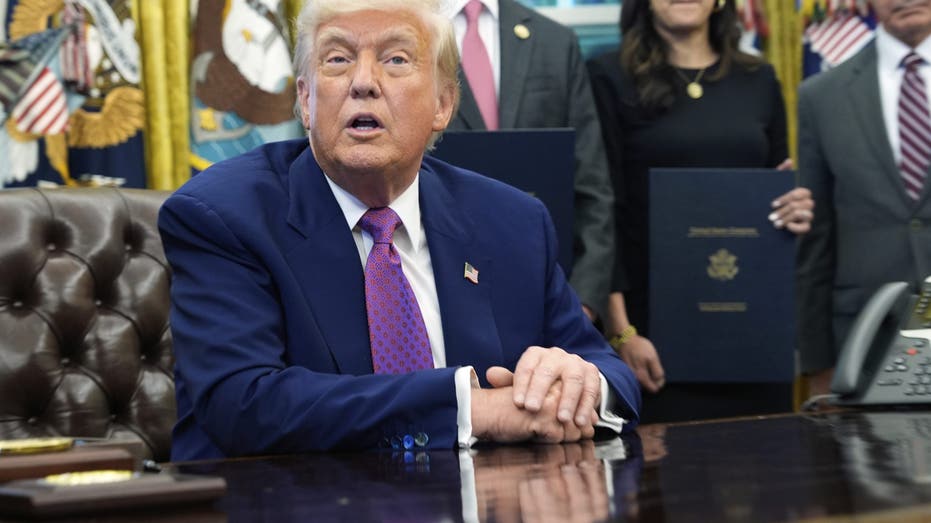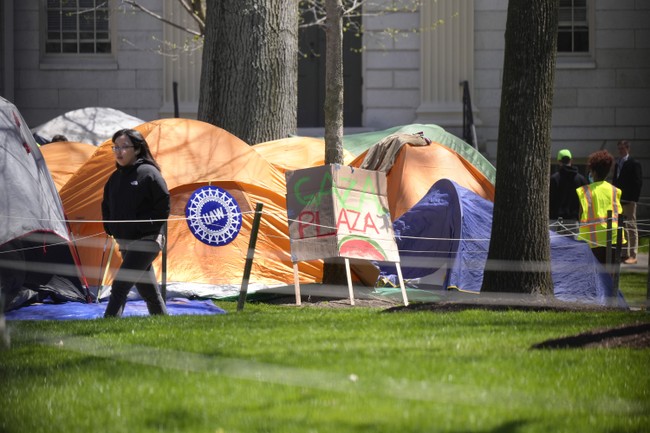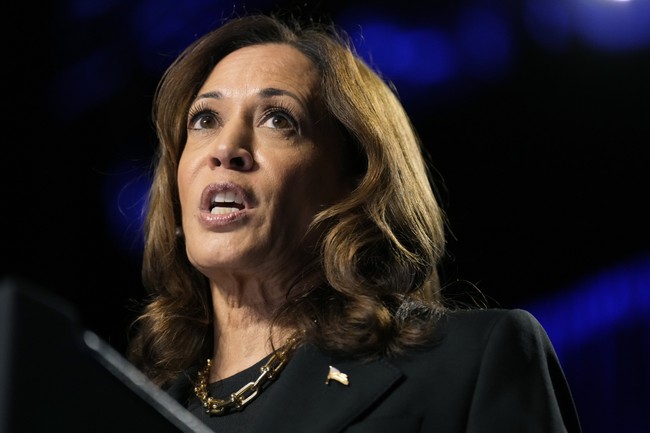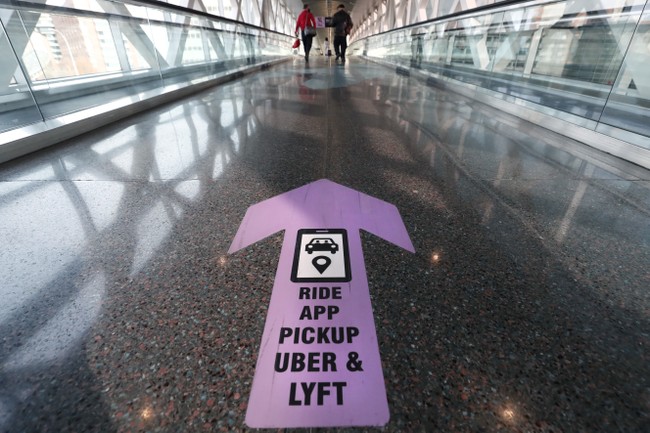On Tuesday, the Supreme Court ruled 6-3 in favor of President Donald Trump, clearing the path for the administration to move forward with its plan to ban transgender people from serving in the military. The plan would also remove current transgender service members as the lower courts continue to debate the legality of the ban.
The Supreme Court order is not a final ruling on the issue, but will remain in place as litigation proceeds.
Approximately how many service members will be impacted is unclear. Recent figures from the Defense Department reported 4,240 — or 0.2 percent — of about 2 million service members have been diagnosed with gender dysphoria. Data from previous years by advocacy groups has calculated the number to be much higher, at around 15,000.
Among those transgender service members is Commander Emily Shilling, who has served in the Navy for almost two decades. A naval aviator with over 60 combat missions under her belt, she is the lead plaintiff suing the administration to overturn the ban. Shilling told Women Rule that it’s her duty not only to follow lawful orders but to challenge those she believes to be unlawful.
Trump unveiled the plan in an executive order on inauguration day. The basis for the order, which Trump also enacted during his first term, is the argument that gender dysphoria is incompatible with military service.
U.S. District Judge Ana Reyes — a Joe Biden appointee — blocked the move on March 18, but the ruling was subsequently paused by a three-judge panel of the D.C. Circuit Court of Appeals. A second judge, George W. Bush appointee U.S. District Judge Benjamin Settle, also blocked the order 10 days later.
The Supreme Court ruling was unveiled in a one-page order, with the three liberal judges dissenting. Neither side provided reasoning for their positions given it was an emergency appeal.
“I’m heartbroken,” said Shilling, who is president of SPARTA Pride, a nonprofit advocacy group for transgender service members.
Now, Shilling’s future, along with many other transgender service members, is riddled with uncertainty.
Women Rule spoke with Shilling about the SCOTUS decision, its impacts and her experience serving as a high ranking official in the U.S. Navy. She stressed that her views do not necessarily reflect those of the U.S. Department of Defense or the Navy.
This interview has been edited for length and clarity.
You've been fighting against Trump's military ban since he signed the executive order. Now that the SCOTUS decision has been released, how do you feel?
My oath, as any military officer would tell you, is to the Constitution of the United States and to follow all lawful orders. And so right now, I'm following lawful orders. I'm being kicked out. I will follow what I'm being told. But it's also my duty to challenge anything that I feel is an unlawful order. And the only way for me to do that is to sue, because I can't go storm off. I have to use the legal system, which is why it's there. So I am performing my duty. I am challenging something that I believe to be an unlawful order, and we'll let the courts decide.
We were hoping that the Supreme Court would go to a shadow docket and make a decision that was kind of final. That way we can all just move on with our lives, either we're banned and we can go get our new jobs, figure out where we're going to live, figure out how to pick up the pieces, or we're not banned, and we get to continue to serve and do what we love. Instead, we got kind of a non-answer, and we got the protections that we did have stripped away from us. We had this injunction in place that allowed people to stay deployed, allowed people to continue with their careers.
I had individuals who were about to take over command of places, and then the ban happened, and they got pulled off of those things. And that person lost the opportunity to command, and their career is irrevocably damaged. Thousands of people will be kicked out of the military, and then if the lower courts decide “Oops, that's a mistake,” what are we going to do? Invite them all back?
What’s your plan these next few months?
This fight right now is purely legal. We hope that we will have a more favorable administration or Congress at some point, and then we can step up the advocacy side again, working on public opinion, working on congressional opinion, and hopefully get trans and so many other rights codified into law.
So for Emily Shilling, the next few months are going to continue to be this world of uncertainty: Do I have a job? Do I not? Am I going to continue with the Navy? Am I not? It's a hard place to live in. I have the privilege and luck that my partner is, she's an O-5 in the military too. She makes good pay, and we can live on her salary, and she's not at threat of losing our job. But there are a lot of troops who aren't in that situation, and they're going to be hurting like so many Americans are right now.
Recent administrations have sort of flip-flopped on this issue. Trump instituted a ban in his first term, which Biden revoked, and now Trump’s bringing it back. How do you think that impacts young transgender people’s willingness to serve?
Well, I feel it's devastating. It's not only devastating to the trans individual, but to all their friends and their allies. Studies have shown that the mass majority of our youth support the LGBT community, and are they going to want to work or serve for an organization that doesn't reflect those values? I got called to the Navy because the motto at the time when I joined was, “A global force for good,” and I truly believed that, and I'm very proud of the service that I've done. In my entire adult life I've encouraged my kids to go into the military. When I've talked to people, I've told them that they've given me so much, and I'm such a better person for having served. At this moment I can't give that advice [in] good conscience, and I truly hope, and I choose to hope and believe that our military will prevail in the end, and we will show what honor and courage and commitment look like, and we will stay true to our values, and we will be a service worth serving for.
Why do you think the Trump administration continues to target transgender military members?
I don't want to get ahead of the president, and I don't want to really speak for him, because it's not my place to make any kind of judgment on his character or on his policies; he's my boss. But I think in the grander scheme, there's always some population that is vilified, that has turned into the boogeyman. And the arguments are always the same. They were: “Oh, it's going to destroy morale in the units. Oh, it's going to cost too much. Oh, it'll be a distraction.” And every single time, we have been shown that it's just not the case.
I was in the service when “don't ask, don't tell” was repealed. I remember sitting on the fantail smoking cigars with my friends and them thinking it was just the end of the world if we let gay people serve in the military, that the military will just disintegrate, and it just isn't the case. We're here over a decade later, and the military is still strong. It's going to be the same thing with trans individuals. It's just going to take time for the world to catch up.
You’ve talked in the past about how transitioning helped you become a better leader and a stronger asset to the military.
In 2016 when I was a test pilot, I was at the peak of my career living my dream. And I didn't come out when I could, because I wanted to keep flying, and I didn't want to put my squadron down a person. So I waited. And by the time that I could come out, the ban was put in place the first time. And that left me distracted, it left me angry. It left me unable to connect with individuals because I was only bringing in 60, 70 percent of myself to work. The rest of that energy was dealing with putting a mask on and being somebody I'm not.
So when I finally did come out, I'm now showing up to work completely authentic. I'm showing up at 100 percent and I'm able to actually meet people where they are with a little bit of empathy.
Before I came out, I was a 36-year-old white man, married, three kids, two cars, a dog, a house, and I didn't think racism existed. I didn't think sexism existed. I didn't see any of them because I never experienced them. And when I got put into one of the most despised groups in the country right now or vilified groups, the transgender community, I'm hearing this bigotry and this transphobia, and it really opened my eyes that maybe I didn't have it all right, and just because I hadn't seen or experienced it myself, maybe I was wrong. I learned so much that I had never seen or been willing to see. I'm able to connect with my people in a way that I've never been able to. And that is true leadership.
You've served for almost two decades now. Why was it important for you to serve in the first place? And how has service impacted you?
People always say, “Thank you for your service,” and all I can ever say back is “No, thank you to the service for letting me serve.” I graduated college, I started working as an engineer, and I wanted some adventure. I wanted to do something that I felt meant something. When we were in Afghanistan, the thing that drove me was women's rights. And I was very proud of what we were doing.
I'm heartbroken. I've watched something that I've dedicated so much energy and so much time to and so much love to. It was the honor of a lifetime to serve in the U.S. Navy, and I just hope that they live up to the sacrifice that we've made.
.png)














 English (US)
English (US)